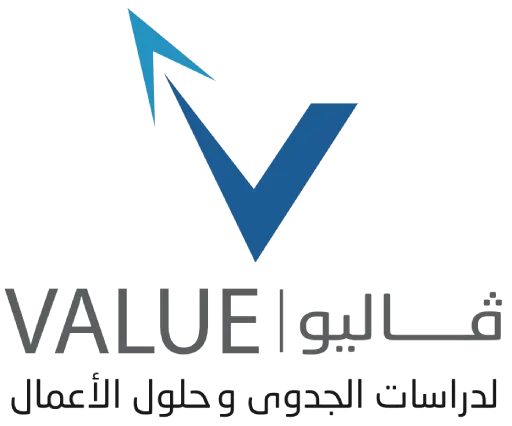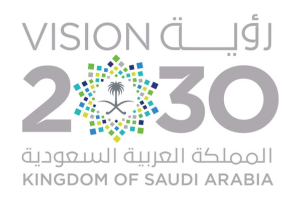feasibility studies for projects based on the circular economy
table of contents:
introduction
the importance of feasibility studies for circular economy projects
practical examples of feasibility studies for circular economy projects
benefits of circular economy projects
additional benefits of circular economy projects
introduction:
in light of the environmental and economic challenges the world is facing today, the circular economy has become a vital model that focuses on the sustainability of resources and minimising waste. this model relies on the recycling and sustainable use of materials, minimising negative environmental impacts and promoting economic growth. however, in order to succeed in projects based on this model, it is necessary to conduct a comprehensive and integrated feasibility study that ensures that financial and technical objectives are effectively achieved. in this article, we will review the importance of feasibility studies for circular economy projects, practical examples of successful projects in this field, as well as the environmental and economic benefits of these projects.
the circular economy is an economic model that focuses on minimising waste and using resources efficiently through recycling and reuse, which contributes to environmental and economic sustainability. preparing a feasibility study for projects based on the circular economy is essential to ensure the success and sustainability of these projects.
1. the importance of a feasibility study for circular economy projects
a) Analyse the target market
a feasibility study helps identify the demand for sustainable products or services, such as recycled products or smart waste management systems.
analyse the target audience, such as businesses looking for sustainable solutions or environmentally conscious consumers.
b) identify available resources
helps in assessing recyclable materials or resources that can be reused in the production process.
identify sustainable supply chains that align with the principles of the circular economy.
c) financial feasibility analysis
estimate the initial costs of setting up the business, such as the costs of collecting and recycling materials.
estimate revenue from the sale of sustainable products or services.
d) promoting compliance with environmental regulations
– The feasibility study helps identify the legal requirements and environmental regulations associated with the project, such as waste disposal standards or recycling techniques.
– It ensures compliance with local and international laws, protecting the project from fines or closure.
example: setting up a plastic recycling plant complies with emission reduction laws and demonstrates a commitment to environmental sustainability.
2. practical examples of feasibility studies for projects based on the circular economy
a) Plastic recycling project to make new products
market analysis:
study the growing demand for eco-friendly products, such as reusable bags or plastic furniture.
identify target groups such as supermarkets or companies that need sustainable packaging.
technical feasibility:
evaluate the cost of collecting and sorting plastics.
identify the equipment needed for recycling and production.
financial feasibility:
estimate initial costs, such as equipment purchase and site rent.
project revenue from the sale of finished products such as furniture or bags.
risk analysis:
address the potential shortage of recycled plastics.
develop plans to raise awareness about collecting plastics from the community.
b) organic Waste to Fertiliser Project
market analysis:
study the demand for organic fertilisers among farmers and garden owners.
identify opportunities in markets looking for alternatives to chemical fertilisers.
technical feasibility:
evaluate the cost of collecting and processing organic waste.
identify the technology used to compost the waste.
financial feasibility:
calculate operational costs such as waste collection and equipment maintenance.
projecting revenue from the sale of natural fertiliser to agribusinesses and individual consumers.
risk analysis:
develop odour management plans and ensure compliance with environmental standards.
c) fashion manufacturing project from textile waste
market analysis:
analyse the demand for sustainable clothing among environmentally conscious consumers.
targeting brands looking for recycled materials.
technical feasibility:
evaluate the technology needed to convert textile waste into new fabrics.
determine the cost of collecting and sorting raw materials.
financial feasibility:
estimating production and logistics costs.
predict the revenue from the sale of recycled garments or fabrics.
risk analysis:
dealing with the quality challenges of used raw materials.
develop plans to ensure continuity of supply and compliance with market requirements.
d) recycling glass to make new products
– Market analysis:
study the demand for sustainable glass products such as bottles, cups, and decorations.
o Identify target groups such as restaurants, cafes, and businesses looking for sustainable packaging solutions.
– Technical feasibility:
evaluate the cost of collecting and sorting used glass.
identify the equipment needed to break and reshape the glass into new products.
– Financial feasibility:
estimate the initial costs of purchasing the equipment and setting up the plant.
predict revenue from the sale of recycled glass products.
– Risk Analysis:
challenges in collecting used glass in sufficient quantities.
develop plans to ensure the safety of workers while handling broken glass.
e) Metal recycling project to make new tools
– Analyse the market:
study the demand for recycled metal tools such as metal furniture or household items.
identify target markets such as industrial companies and home appliance stores.
– Technical feasibility:
evaluate the cost of collecting and sorting metals such as aluminium and steel.
identify the technology and equipment needed to remelt and shape the metals.
– Financial feasibility:
estimate the costs related to metal collection, equipment purchase, and energy costs used in recycling.
predicting revenue from the sale of recycled metal items.
– Risk Analysis:
facing shortages in collecting metal raw materials.
develop plans to ensure efficient smelting and manufacturing processes to minimise costs.
3. benefits of circular economy projects
– Promote environmental sustainability:
o Helps reduce waste by recycling and reusing resources.
o Maximises the efficient use of natural resources, reducing environmental impact.
– Economic savings:
o Reduces operational costs by minimising the need for new resources.
o Allows the use of local recycled materials instead of importing raw materials, reducing costs.
– Attracts investors and customers:
o Increases the attractiveness of the project to environmentally conscious customers who favour sustainable products and services.
enhances investor confidence by offering a business model that is in line with global sustainability trends.
additional benefits of circular economy projects
– Fosters innovation:
circular economy projects encourage the development of new technologies and solutions for recycling and reuse.
o Contribute to the delivery of innovative products and services that meet sustainable market needs.
– Create new jobs:
o These projects generate jobs in areas such as waste collection, recycling, and sustainable manufacturing.
help support local communities by creating jobs in emerging sectors.
– Reduce dependence on natural resources:
o Minimises the depletion of natural resources by reusing existing materials.
o Minimises the environmental impact associated with the extraction of raw materials.
– Strengthen relationships with partners and the community:
projects foster collaboration with local partners in collecting and recycling materials.
o Improves the project’s public image with the community and customers as an environmentally responsible organisation.
– Compliance with international environmental policies:
o Helps to comply with increasing environmental regulations in local and global markets.
opens up new markets that require sustainable and environmentally friendly products and services.
valeo’s role in circular economy projects
feasibility studies play a pivotal role in the success of circular economy projects, serving as an essential guide to help analyse all aspects of the project thoroughly. in a world that is increasingly concerned with sustainability and environmental protection, it has become essential to implement the circular economy model, which focuses on recycling, minimising waste and maximising the use of available resources. this is where feasibility studies come in to play in facilitating and achieving the objectives of this model effectively.
feasibility studies help companies analyse and assess the economic and technical feasibility of sustainable projects, from analysing the target market and its needs, to identifying the available resources and the most appropriate production methods. it also estimates the initial and financial costs of the project to ensure sustainable financial solutions that can support operations in the long term.
through the feasibility study, investors can identify market opportunities and potential barriers, which contributes to making informed strategic decisions. it also helps assess the project’s impact on the environment, ensuring compliance with environmental, local and international standards.

the circular economy is an innovative economic model that opens wide horizons for environmental and economic sustainability. through feasibility studies, investors and project owners can identify benefits and opportunities, as well as manage risks and achieve sustainable success. the combination of comprehensive market analysis, resource estimation, and financial viability verification provides a strong foundation for innovation and growth in this field. therefore, if you are looking to embark on a circular economy project, an integrated feasibility study is key to ensuring project success and a long-term positive impact on the environment and society.
don’t hesitate to reach out to us via WhatsApp or call us for more details or enquiries. we are always at your service!
read also: feasibility study in digital and technology projects.





